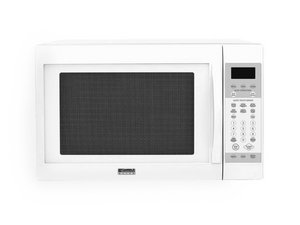To keep from being a parts jockey, please understand the following:
A microwave that is heating normally does not have a problem with the magnetron, HV diode, HV capacitor, door switches, or transformer. If any of those are bad, you will not get heating.
If the HV diode is bad, you won't get heat and it is unlikely that the internal fuse will blow because they usually blow open not shorted, but it might happen.
The transformer, magnetron and capacitor may blow the fuse but it is unlikely the transformer will fail and the magnetron is the lesser suspect.
Door switches on the other hand are the most common failure, either because they fail, or the mechanism that activates them is worn or misadjusted.
Door switches, mechanisms and adjusting (most newer MW eliminated adjustments) are simple for any mechanically inclined person with a multimeter. Diodes are the easiest to replace and cheap on Amazon (2x for $10.00 and cheaper on Aliexpress).
They are also easy to troubleshoot, since they usually burn up. If the magnetron is bad it is time for a new MW.
I am betting 98% of the MWs in the dump are simple, cheap repairs - Diodes, or door switches. And that is truly a waste.
HOWEVER, IF YOU OPEN UP A MW YOU MUST KNOW HOW TO NEUTRALIZE THE HV STORED ON THE CAPACITOR.
War diese Antwort hilfreich?
Bewertet
Rückgängig machen
Bewertung
0
Abbrechen
Schau durch den Thread, bis du den richtigen Platz für diesen Kommentar gefunden hast. Klicke dann auf "Den Kommentar diesem Post zuordnen", um ihn zu verschieben.


 1
1  5
5
My microwave makes loud buzzing from start to finish, but it has always worked. To me, along with the abnormally loud buzzing, my microwave heats and cooks slow for its size. Everyone who comes over to visit me notices how loud my microwave is when i turn it on to heat something up, they mention how loud the buzzing soynd is .... and it scares them.
I know it's related to the magnetron's function because when defrosting food the loud buzzing comes on and turns off intermittently as food is slowly defrosted.
Recently, using my opened palm, I bumped the bottom side of my microwave a few times while it was operating to see if that would cause the buzzing noise to change and the next day the buzzing was noticeably quieter while running the microwave. Also seems to heat up and cook faster now.
von Rachel ☆